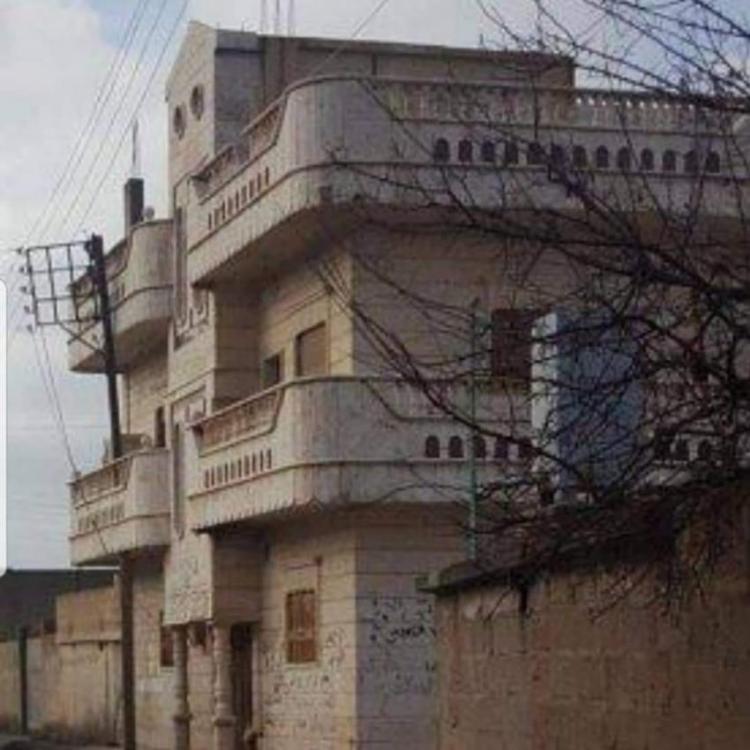"I have nothing left in my country except childhood memories and my brothers graves" – Syrian-Kurdish Journalist
Qamishli – North-Press Agency
Avin Sheikhmous
Stories differ in their details as they are similar in essence to paint an accurate picture to a large extent about what was left by the two Turkish military attacks on Sere Kaniye (Ras al-Ain), which are separated by about 7 years, during which the city and its countryside had witnessed a relative stability. So, in the second occupation of Sere Kaniye (Ras al-Ain) in 2019 by the Turkish military and its affiliated armed groups, the city's indigenous people were displaced, hundreds of war-crimes and violations were committed, and civilian houses and properties were taken over. This is what Journalist and human rights activist “Muhyedin Isso” stated.
Among the looted and seized properties in the recently occupied areas by the Turkish military and its affiliated armed groups, is the house of Syrian-Kurdish journalist Muhyedin Isso, who is descended from the city of Sere Kaniye (Ras al-Ain), who told North-Press that, "my mother could no longer even cut the distance between the door of her house and the graves of her children, so those graves remain hostage by the occupiers.”
"After my family was displaced in the cemetery of Sere Kaniye, Turkey, Kurdistan Region, Germany and Sweden, I have nothing left in Syria except the memories of my childhood and the graves of my two younger brothers,” Muhyedin Isso added woefully.
The journalist and human rights activist from Sere-Kaniye Muhyaddin Muhyedin Isso has worked in the media as a member of the Board of Trustees of the Committees for the Defense of Democratic Liberties and Human Rights since 2003. He worked in the Syrian opposition centers, including the Syrian Center for Media and Freedom of Expression and the Center for Documentation of Violations in Damascus until 2012, while he pointed out in his interview with North-Press that he was deprived of his Syrian nationality, "as among the Syrian-Kurds who were victims of the 1962 census, who were stripped of the Syrian citizenship.”
Isso's house in Sere Kaniye was raided in late 2012, due to the establishment of the "Syrian Journalists Association" alongside his house in the Syrian capital, Damascus, to be forced to leave into Iraq’s Kurdistan Region.
Isso recalled the events at the end of the year 2012, “the attack of the Turkish-affiliated armed opposition groups, including Jabhat al-Nusra (al-Qaeda's affiliate in Syria) on the city of Sere Kaniye, they occupied the city and deported its 50,000 population, so my family was displaced into Turkey", as he said.
According to Muhyedin Isso, those armed groups occupied his house for more than four months, as a result of his media works and his appearance on Arab TV Channels, and mentioning their violations, while his family was unable to return from Turkey during the control of those armed groups.
His family was dispersed between Turkey and Kurdistan Region, while Isso left to Europe to pass through Turkey and the prisons of Bulgaria, Serbia, Hungary and Austria due to the illegal immigration, until he arrived in Germany where he was exposed to "leukemia", as he is undergoing chemotherapy.
Isso confirmed that his family has followed him based on letters addressed to the German Foreign Ministry from “Reporters Sans Frontières” and other human rights organizations, while his two younger brothers had lost their lives in Kurdistan Region and were transferred into their hometown of Sere Kaniye for burial.
Isso concluded that: "My mother who doesn't speak Arabic and won't read these words, still doesn't know anything about my illness, she kept her tears when she saw me, and said: "Life for me is the distance between my house door in Sere Kaniye and the graves of my children!”
Following the Turkish military and its affiliated armed opposition groups’ invasion in northeastern Syria on October 9, hundreds of thousands of indigenous people were displaced from their areas, especially from the bordering areas of Sere-Kaniye (Ras al-Ain) and Gre Spi (Tal Abyad).

